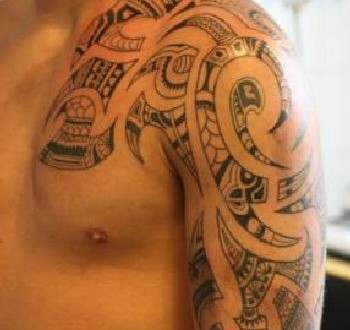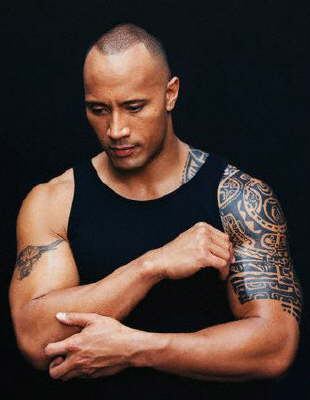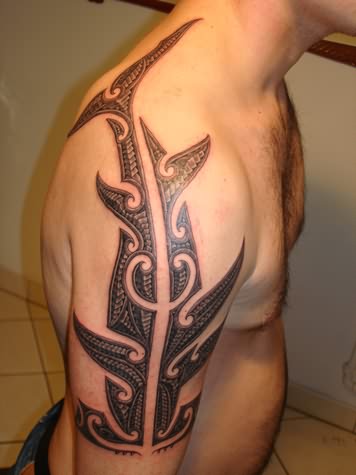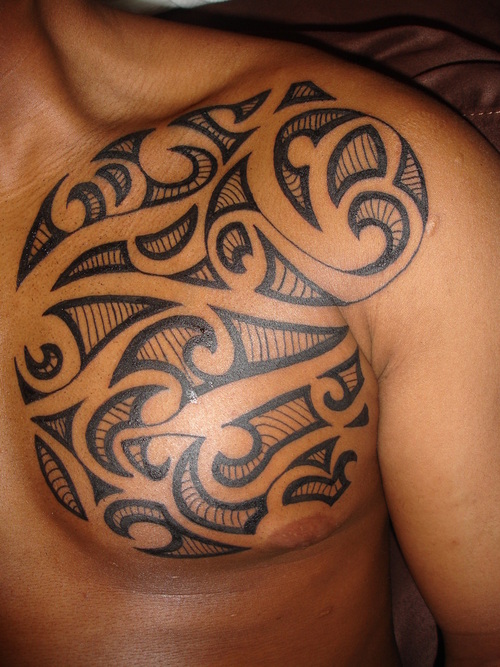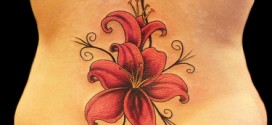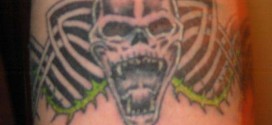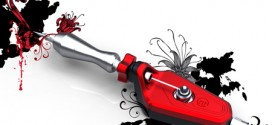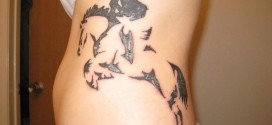The Maori tribes are natives of New Zealand. Though, they are part of the Polynesian heritage, they have given themselves a distinct cultural heritage that historians have separated them from the different tribes of Polynesia.
It is very much the same for their tattoo designs. The Maori tribal tattoos have their own unique identity compared to their Polynesian counterparts. Their spirals and curved shapes form a very intricate pattern that very distinctive to the Maori tribes. Legend said that a young warrior learned the art of the Maori tribal tattoos from the lord of the underworld, after winning back the heart of the lord’s daughter.
For the Maori tribe, the tattoos are part of special rituals celebrating a particular or special event in one tribesman’s life. A tribesman would receive his or her first tattoo as a rite of passage from childhood to adolescent and would be added whenever there are significant events in his or her life that would need to be celebrated. A tribesman that would be awarded with a tattoo would go into fasting before he or she was given a tattoo. During the ceremony itself, there would be music and chanting as it is a celebration not only for that particular tribesman but for the whole tribe itself.
Both men and women of the tribe can be awarded with a tattoo as a show of courage, strength and would be given a specific status in the tribe. The tattoos of the men in particular would cover the whole face while the women would only cover the cheeks and the lips, though sometimes the tattoos for the women would cover the neck as well.
It is said that the more tattoos a person have in his body, the higher his status is in their tribe. Tribesmen who do not have a tattoo in their bodies were considered worthless. Though women in the tribe have lesser tattoos in their bodies, it is mostly because they are not required to show much courage and strength and leave their men to it.
Maori tribal tattoos are mostly known for their face tattoos. But there are also tattoo designs that are used for the body specifically the legs and the buttocks. The body tattoos would be closely similar to the face tattoos with the small difference of the curves and spirals being bigger and more distinct than the face tattoos would be.
At present, the Maori tribal tattoos are being revived after it was almost extinct in the late 19th century. It has lost much of it significance during the arrival of the European settlers in New Zealand but is slowly being revived including the ancient way of putting on the tattoos. But today’s tribal tattoos are mostly placed on the body and are seldom being done on the face. The use of modern equipment to put the tattoos has also replaced the old ways.
But even with the modernization of the Maori tribal tattoos, there is one thing that the Maori tribe had kept in their tradition. That is to keep a tattoo unique since a tattoo is a symbol of a person’s identity. To copy an existing Maori tattoo design is an insult to the Maori tribesman you have copied it from. So, get a tattoo that is unique.
The Maori tribes are natives of New Zealand. Though, they are part of the Polynesian heritage, they have given themselves a distinct cultural heritage that historians have separated them from the different tribes of Polynesia.
It is very much the same for their tattoo designs. The Maori tribal tattoos have their own unique identity compared to their Polynesian counterparts. Their spirals and curved shapes form a very intricate pattern that very distinctive to the Maori tribes. Legend said that a young warrior learned the art of the Maori tribal tattoos from the lord of the underworld, after winning back the heart of the lord’s daughter.
For the Maori tribe, the tattoos are part of special rituals celebrating a particular or special event in one tribesman’s life. A tribesman would receive his or her first tattoo as a rite of passage from childhood to adolescent and would be added whenever there are significant events in his or her life that would need to be celebrated. A tribesman that would be awarded with a tattoo would go into fasting before he or she was given a tattoo. During the ceremony itself, there would be music and chanting as it is a celebration not only for that particular tribesman but for the whole tribe itself.
Both men and women of the tribe can be awarded with a tattoo as a show of courage, strength and would be given a specific status in the tribe. The tattoos of the men in particular would cover the whole face while the women would only cover the cheeks and the lips, though sometimes the tattoos for the women would cover the neck as well.
It is said that the more tattoos a person have in his body, the higher his status is in their tribe. Tribesmen who do not have a tattoo in their bodies were considered worthless. Though women in the tribe have lesser tattoos in their bodies, it is mostly because they are not required to show much courage and strength and leave their men to it.
Maori tribal tattoos are mostly known for their face tattoos. But there are also tattoo designs that are used for the body specifically the legs and the buttocks. The body tattoos would be closely similar to the face tattoos with the small difference of the curves and spirals being bigger and more distinct than the face tattoos would be.
At present, the Maori tribal tattoos are being revived after it was almost extinct in the late 19th century. It has lost much of it significance during the arrival of the European settlers in New Zealand but is slowly being revived including the ancient way of putting on the tattoos. But today’s tribal tattoos are mostly placed on the body and are seldom being done on the face. The use of modern equipment to put the tattoos has also replaced the old ways.
But even with the modernization of the Maori tribal tattoos, there is one thing that the Maori tribe had kept in their tradition. That is to keep a tattoo unique since a tattoo is a symbol of a person’s identity. To copy an existing Maori tattoo design is an insult to the Maori tribesman you have copied it from. So, get a tattoo that is unique.
 |
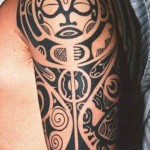 |
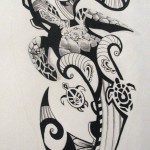 |
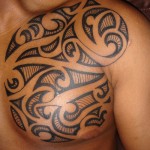 |
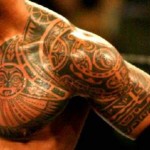 |
 |
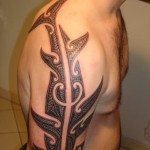 |
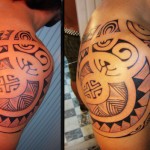 |
 Tattoo Fonts For Women and Women Tattoo Fonts Gallery For Men and Women
Tattoo Fonts For Women and Women Tattoo Fonts Gallery For Men and Women
